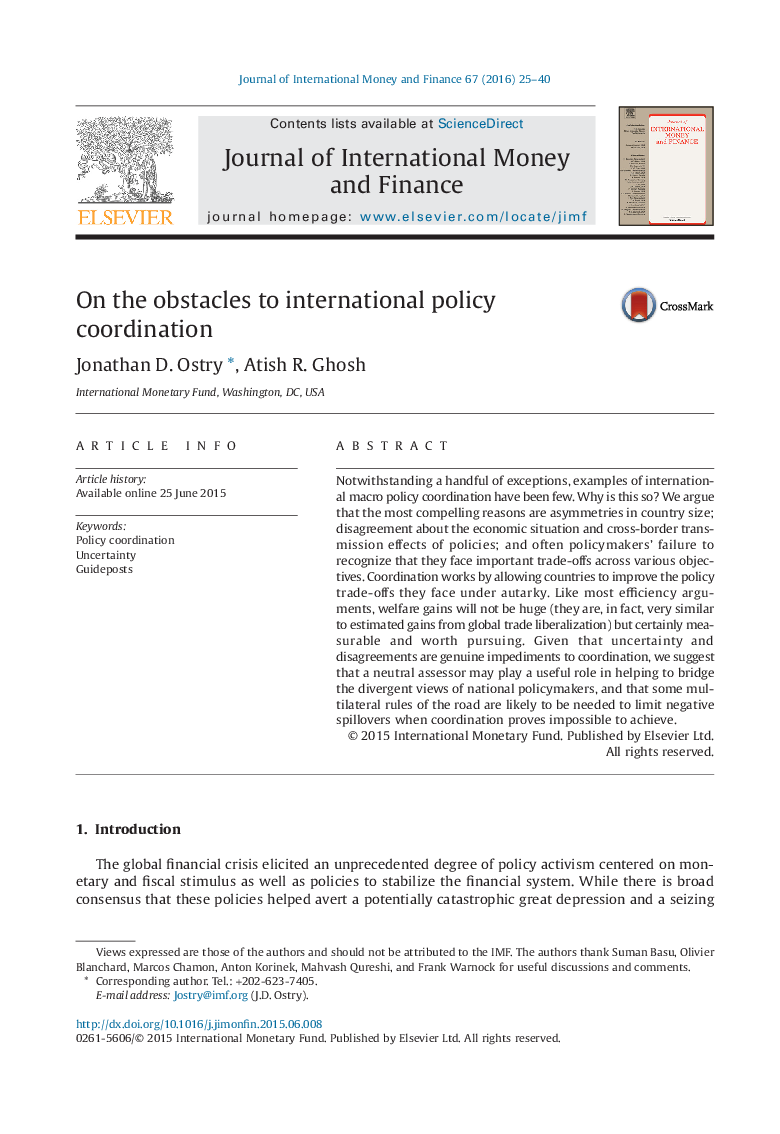| Article ID | Journal | Published Year | Pages | File Type |
|---|---|---|---|---|
| 964582 | Journal of International Money and Finance | 2016 | 16 Pages |
Notwithstanding a handful of exceptions, examples of international macro policy coordination have been few. Why is this so? We argue that the most compelling reasons are asymmetries in country size; disagreement about the economic situation and cross-border transmission effects of policies; and often policymakers' failure to recognize that they face important trade-offs across various objectives. Coordination works by allowing countries to improve the policy trade-offs they face under autarky. Like most efficiency arguments, welfare gains will not be huge (they are, in fact, very similar to estimated gains from global trade liberalization) but certainly measurable and worth pursuing. Given that uncertainty and disagreements are genuine impediments to coordination, we suggest that a neutral assessor may play a useful role in helping to bridge the divergent views of national policymakers, and that some multilateral rules of the road are likely to be needed to limit negative spillovers when coordination proves impossible to achieve.
